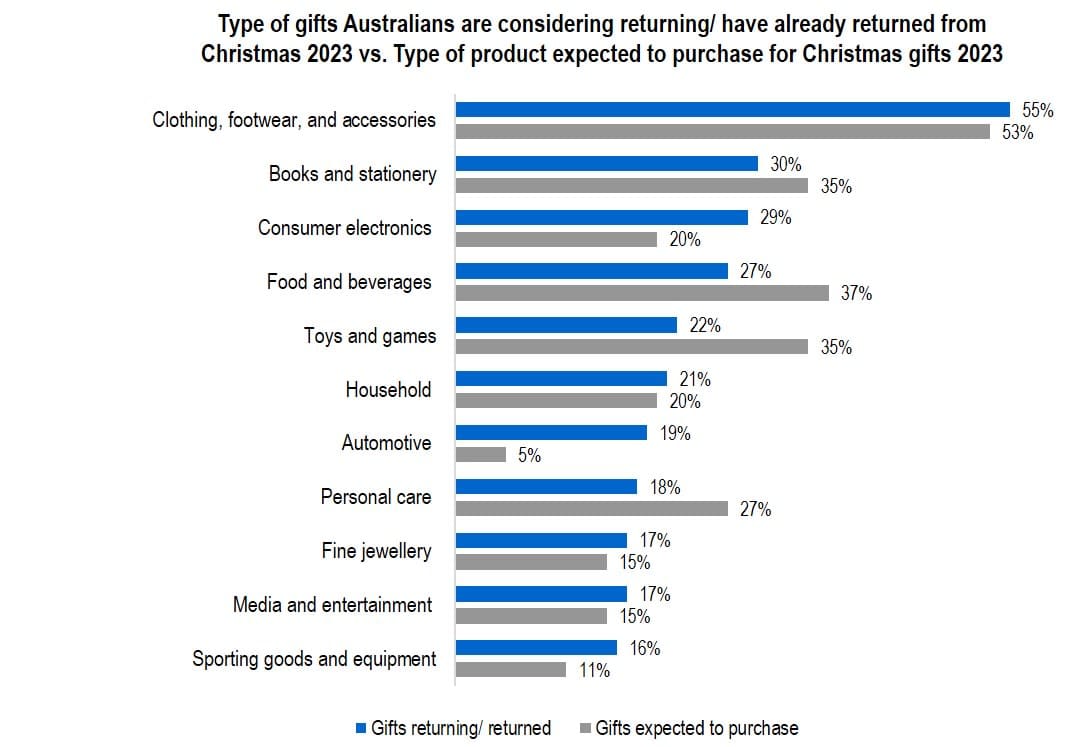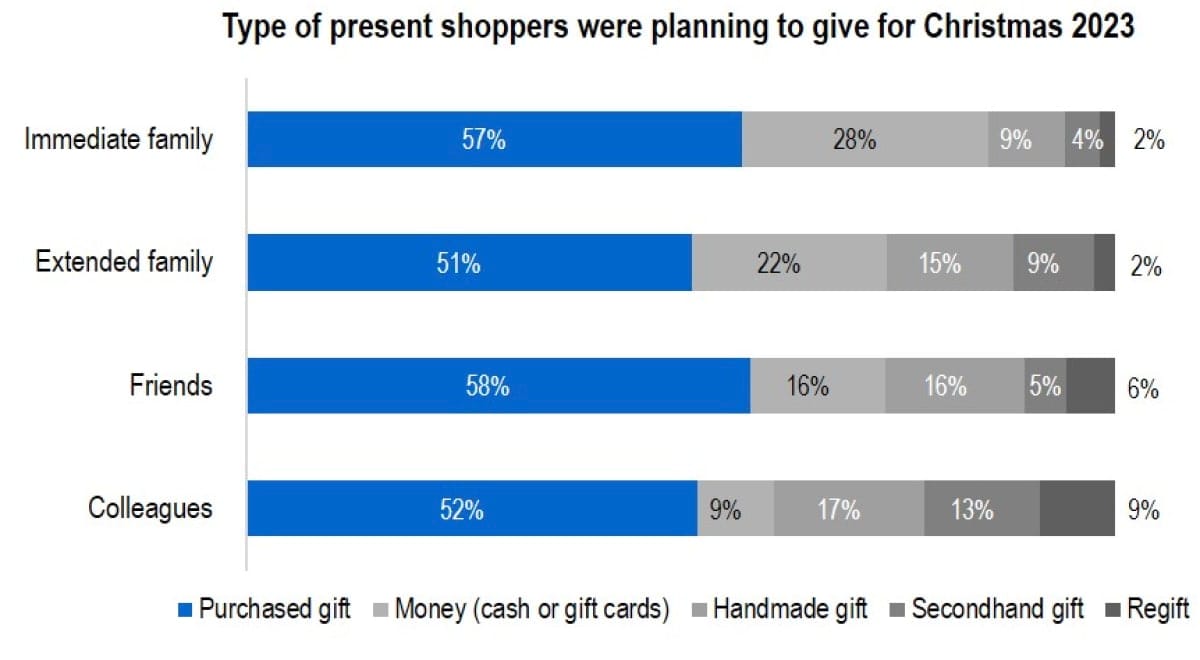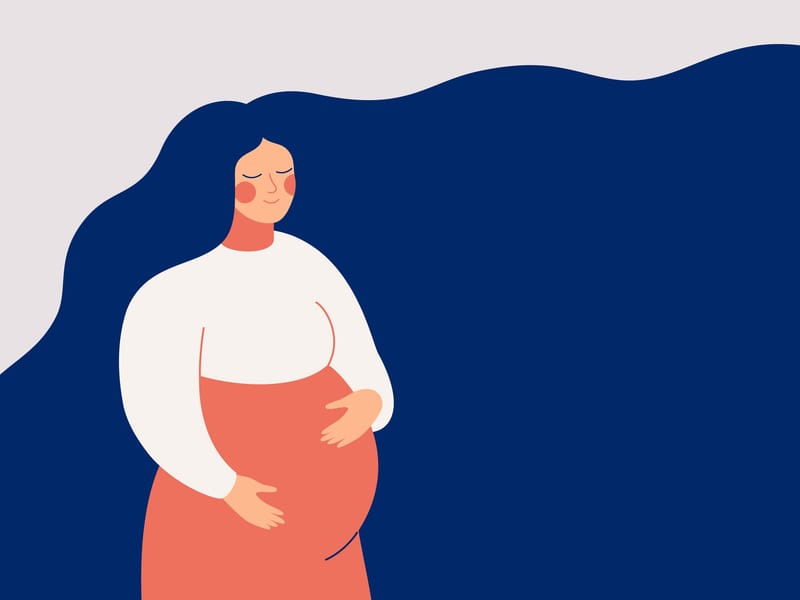
Despite the cost-of-living crisis, Australian shoppers expected to buy and spend more on gifts for family and friends this previous Christmas – but not all of these gifts are for keeps.
Monash Business School’s Australian Consumer and Retail Studies (ACRS) has been conducting research into Christmas gifting and retail trends for several years, and has consistently found that the majority of Australian shoppers intend to purchase Christmas gifts for family and friends (88% in 2023; 90% in 2022; 92% in 2021).
And in fact, despite the cost-of-living crisis, shoppers expected to spend more money on the people they were planning to buy Christmas gifts for in 2023.
But what happens to these gifts afterwards?
Findings of our latest research into Christmas gift returns found that about one in three Australians have returned a Christmas gift to a retail store.
Rate of Christmas gift returns
For Christmas 2023, the majority of shoppers were planning to buy gifts for their immediate family (88%), while a third planned to buy for extended family (30%) and friends (39%), with the planned spend on presents expected to differ according to each group, ranging from an average of $149 for friends, to an impressive $427 on Christmas presents for their immediate family.
Almost one in three Australians (28%) report having returned a Christmas gift to a retail store for a refund, exchange or store credit at one point in time, with a slightly lower amount (almost one in five; 18%) having done so, or planning to, return a gift from the 2023 Christmas period.
Some age groups are more likely to return their Christmas gifts than others. For example, Australians aged 25 to 34 are the most likely to have ever returned a Christmas gift to a retail store (43%), followed by 35 to 44-year-olds (28%), and 55 to 64-year-olds (26%). Older Australians aged 55 and over are the least likely to have ever returned a Christmas gift to a retail store.
Type of gifts being returned
When it comes to the type of gifts being returned from gifts received for Christmas in 2023, the clothing, footwear and accessories category was most commonly cited, followed by books and stationery, and consumer electronics.

This isn’t surprising given that apparel was the most common type of product Australians expected to purchase for Christmas shopping in Christmas 2023, and that this category is largely dependent on fit as well as personal taste.
In fact, two-thirds (67%) of Australians aged 18 to 24 who were planning to or have already returned a gift from the 2023 Christmas period were returning this type of gift.
While apparel was both a high-purchase and high-return gift, in contrast, some gifts had a lower likelihood of being returned compared to their purchase rate, such as toys and games, and personal care.
Conscious Christmas consumers
When it comes to receiving Christmas gifts, half of Australians (50%) stated they’d like a gift receipt to accompany their gift (that is, proof or purchase from the retail store that doesn’t state the amount spent), allowing them to return their unwanted Christmas gifts. This is highest among those aged 25 to 34 (66%), followed by the 35 to 44-year-old age group (52%).
This practice, although traditionally taboo, would help keep unused presents from being destined for landfill, which in turn would save money for consumers and retailers, and have a positive impact on the planet.

Other alternatives include gifting experiences, gift cards, or homemade presents – all of which Australians are starting to do more and more. In our 2023 Christmas research, we found that while purchased gifts were the most popular type, money and handmade gifts were also an important part of planned gifting.
As Australians continue to look to be more sustainable in their everyday practices, Christmas spend and gifting habits will become more and more important in the coming years, and retailers and consumers alike will need to rethink how to make Christmas gifts – and returns – more sustainable.
Note regarding the research: Data was collected as part of ACRS’ Shopper Satisfaction program. The data featured in this article was collected from n=430 randomly-selected Australian shoppers in January 2024.





